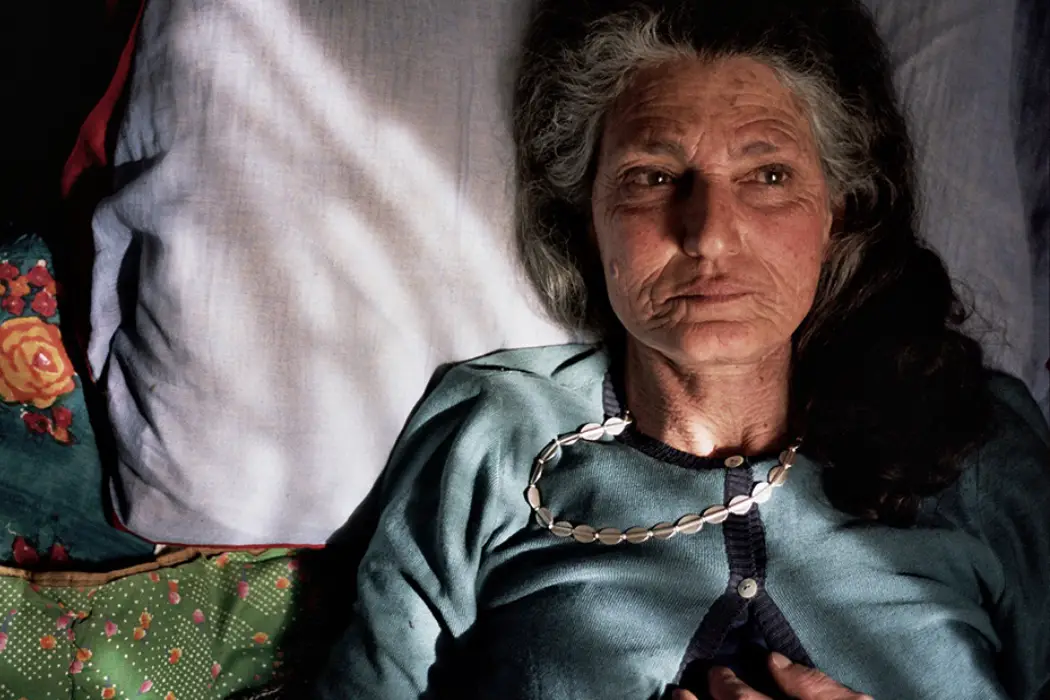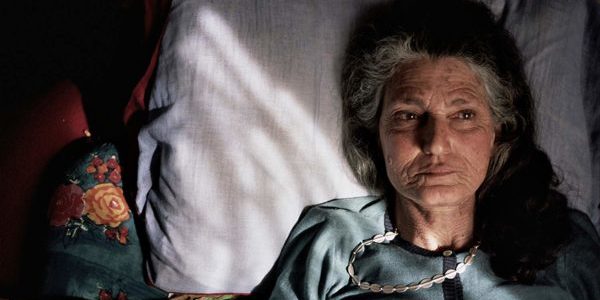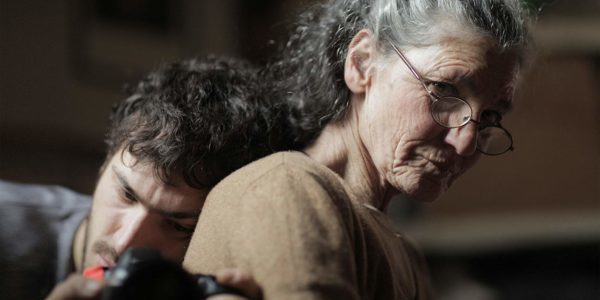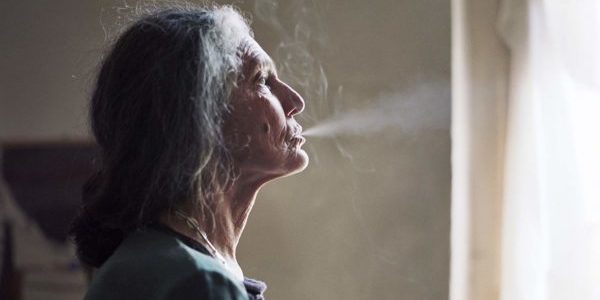THE DISAPPEARANCE OF MY MOTHER: A Compelling Study Of Conflicting Boundaries

Janet is a writer based in Salt Lake City. A…
Though profile documentaries are based on fact, there is still a fine thread of storytelling. The creators pick and choose what they or their subject wants them to illustrate. The film may show their character, but it’s not all of them. The human condition, filled with multiple and wavering complexities, cannot be portrayed in its entirety behind the lens. And this concept is vehemently illustrated in The Disappearance of My Mother.
The documentary explores the dichotomy of Benedetta Barzini’s life. As a mother, former model, educator, and activist, Barzini has embodied contrasting identities that have her longing for a life of freedom – away from the camera and society. Unable to escape the modeling world that she longs to put behind her, Barzini has emotionally struggled to set herself free from these contradictions.
Witnessing multiple facets of her personality is fascinating. And watching the way she exhibits these conflicting pieces that have shaped her life is also conflicting in itself. She disdains images and cameras and longs to break free from them. So the fact that her son, director Beniamino Barrese, follows her around, desperately trying to capture her through his lens becomes this ironic and enticing tug-of-war game.
Though there are relevant questions that the film fails to raise, Barrese creates an absorbing character study of a woman who longs to disappear but her son wants the very opposite – he wants to capture as much of his dear mother as he can before she leaves. As we navigate through their debates, the film becomes a lovely ode to his mother and a very thought-provoking critique on imagery, feminism, and culture.
Two Contrasting Identities
Discovered at the young of 19, Barzini graced the front page of Vogue in 1965. She rapidly rose into a high fashion muse, working with the best photographers and artists such as Irving Penn and Andy Warhol. She then became a mother and radical feminist, using her prior experience and insight as a model to denounce fashion, images, and the male gaze.

Though she became a rising leader of the movement, her modeling life never failed to leave her. Always referred to as the “ex-model,” Barzini’s embodiment of two worlds caused her much unease and dissatisfaction; one component never failing to leave the other. This frustrating dichotomy that she’s lived in has made her want to leave society.
The Relevancy of Images
Barzini believes images are not authentic. Carrying limited boundaries, they tell lies and fail to illustrate the human condition. The subject is projected in the form and image of the photographer. As a result, one’s true self is impossible to capture in a shot.
Now in her seventies, Barzini decides that she will disappear and not come back. It becomes a very philosophical journey of storytelling, exploring the definition of freedom, vanishment, and imagery.
The filmmaker vies to document his subject, his dear mother, who longs to run away from the camera and unleash herself from the unauthentic and trivializing industry that she was a product of. With compelling discussions on image and identity, not only does this become an examination of Barzini, but opposing values between subject and creator. It’s a battle between mother and son to capture Barzini’s quest for liberation and the conclusion of her journey – a journey that has entailed much political and emotional strife.
Elusiveness Creates An Alluring Mystery
“The real me isn’t photographable,” Barzini states in a video during an awards ceremony she reluctantly attends. Intellectual, intuitive, and analytical, she’s a woman who doesn’t hesitate to speak her mind and does things her way. With her son, this usually entails spatting at his camera, shouting at him to turn it off. She regularly vapes while expressing disdain for political and social institutions of society.

She’s also incredibly sweet. There are moments where we see her express tenderness towards family, friends, and peers. Though it might be perplexing seeing contrasting components of her persona, they portray the complexities of the human condition. And getting to witness this through someone so close to her is a very personal experience.
An elusive individual, we never quite get a clear picture of what she’s thinking about; and her son doesn’t pry, most likely because her character is second-nature to him. This elusiveness really ties in with the vanishing figure that she longs to be.
Moreover, the concept of disappearing remains a rather vague concept. They flirt with the idea of staging her disappearance by moving to a remote island or into the woods. She even mentions death. Vanishing becomes this very romantic concept. You can’t help but wonder if she will truly disappear in a remote location or whether it’s simply a fantasy that will float in her mind.
Scarce Narrative Elements Craft a Compelling Portrait
The documentary carries a few missing pieces. There are moments in the film where Barrese could have delved deeper. For example, I would have loved to hear her discuss how she feels about modeling even today. Whether she’s doing it to sustain herself or for other reasons, this component was a major element that was missing; we can’t help but want to know more.
Barrese captures her backstage during a London Fashion Week show. There is a distant and somber feel to her face and movements, as she examines those around her. There is a sense of familiarity and loathing in the way she plants herself in an environment where she was once the centerpiece. It would have been great to veer into these moments and see what’s running through her mind before making an appearance on the runway. Or, before/after doing a photoshoot seaside.

As a feminist and Marxist who has been a severe critic of the exploitation of women’s bodies by men, it’s fascinating to see her dive into the roles that she has critically scathed and loathed. There are even some moments where she poses happily for her son (one of the poignant scenes in the film) instead of pushing him away.
You also can’t help but wonder how her privilege shaped her perception of society and her desire to disappear. And how it ultimately allows her to choose and define her own ending.
There are many things left unsaid but a sort of mutual understanding between mother and son. And perhaps this is where the limitations are for the audience – we cannot go in deeper due to the family bond that sews the film together. Though they initially may seem to hammer a dent in the documentary, I feel as though these ambiguous components only foster an even more compelling project. It’s a personal family documentary sprinkled with subtleties that have us pining for more.
Conlusion: The Disappearance of My Mother
The ending is interesting, as they both discuss how they will end Barzini’s story before she disappears. As they play with different scenarios and narratives, and you can’t help but wonder, is it really about disappearing or is it about the way you conclude the journey in a storytelling medium such as film?
These inexplicable components make this documentary an intriguing project. It fleshes out conflicting boundaries that have shaped the life and perception of Benedetta Barzini for better or worse. It’s filled with melancholy, delicacy, and captivation. There is a fine layer of philosophical and genuine intricacy that makes The Disappearance of My Mother a well-crafted tale of vulnerability.
What are some of your favorite documentaries that capture the complexities of the human spirit? Please share by commenting below.
The Disappearance of My Mother was released in the U.S. on December 6, 2019.
Does content like this matter to you?
Become a Member and support film journalism. Unlock access to all of Film Inquiry`s great articles. Join a community of like-minded readers who are passionate about cinema - get access to our private members Network, give back to independent filmmakers, and more.
Janet is a writer based in Salt Lake City. A strong advocate for underrepresented voices, she believes cinema is a transformative medium that challenges assumptions and creates diverse conversations.













